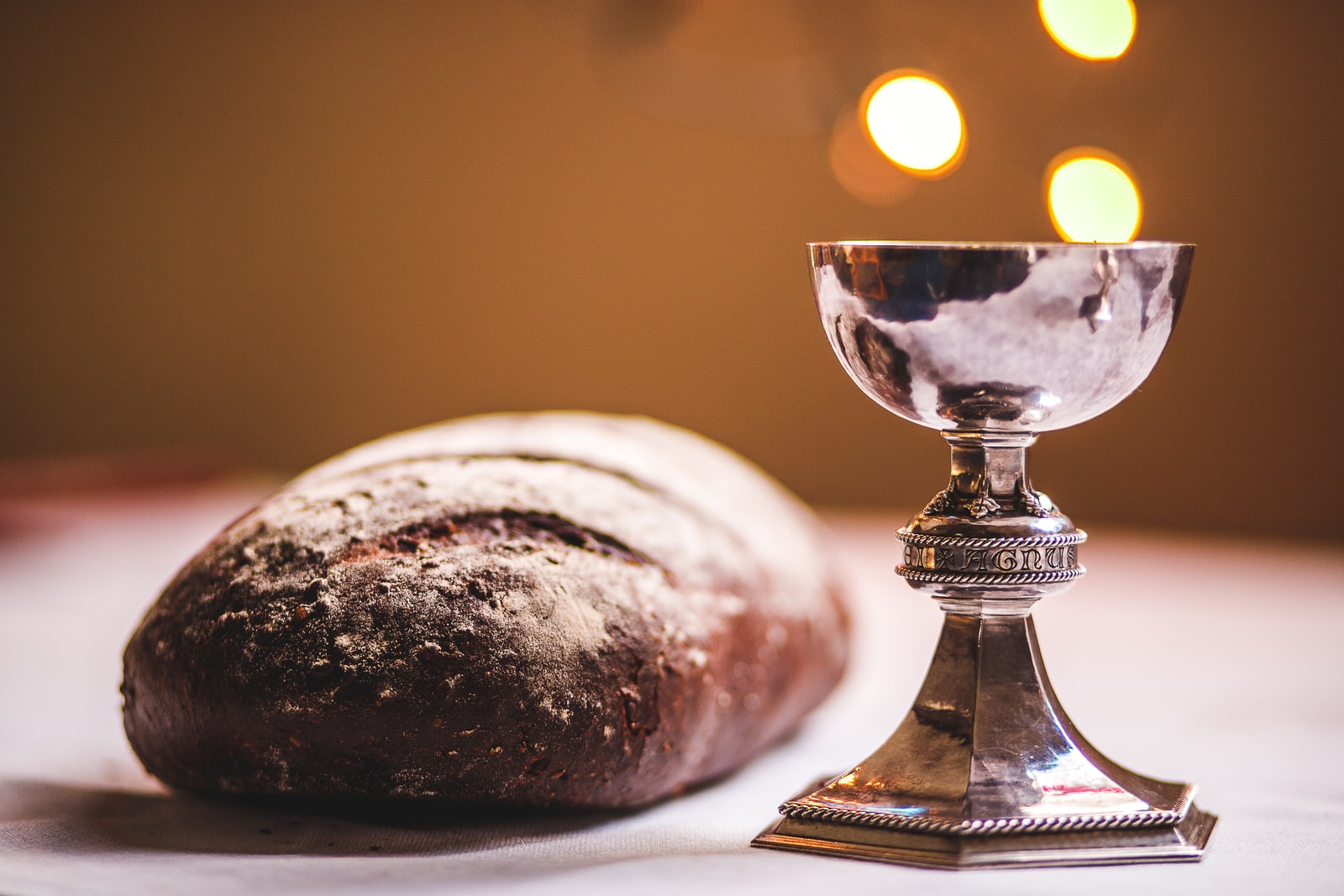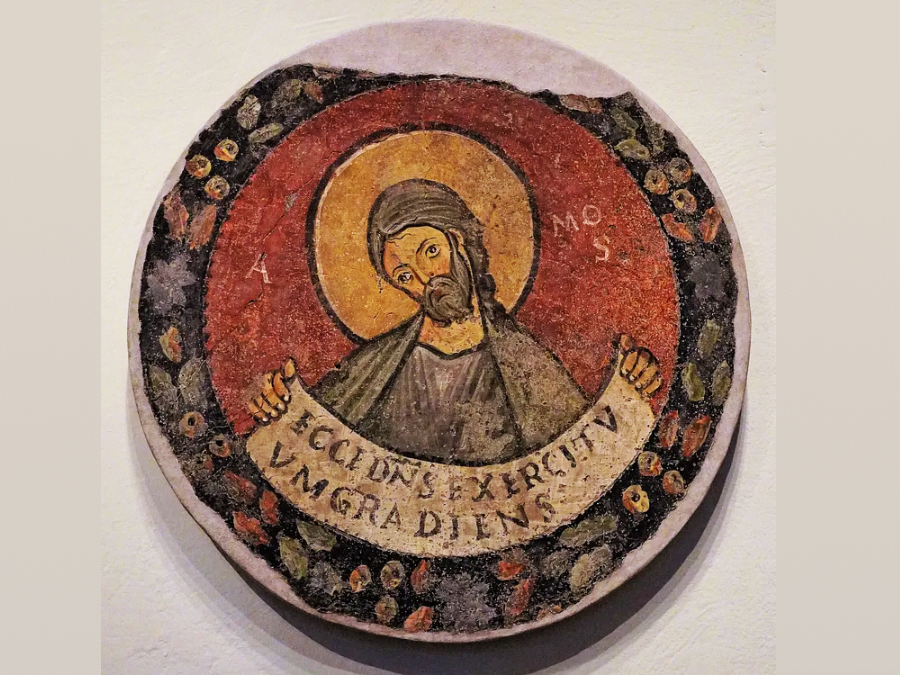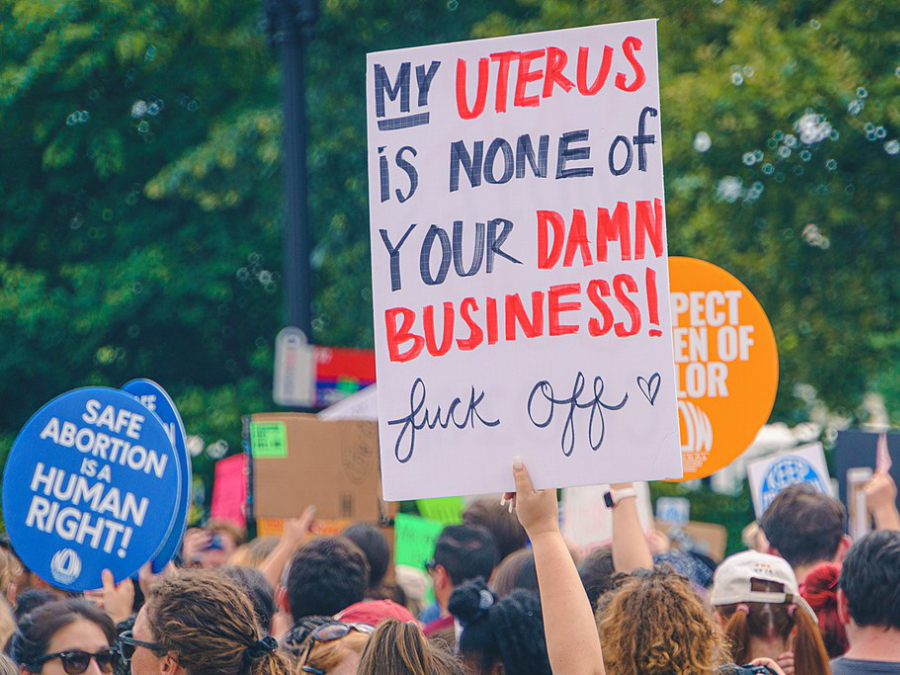
Modern Church ‘Pop-up Forum’ Recording: Open Table – who should be welcomed to communion?
June 29, 2022
Amos then and Britain now: the similarities
July 15, 2022How would I, a man, would feel about the prospect of being responsible for another baby every time I had sex? I can see the point of the question. On the other hand I’m glad I wasn’t aborted. The sanctity of life is something we rightly hold dear.
Yet: what’s that? Ask what sanctity is, or what we mean by ‘sacred’, and nobody can explain. Dictionaries burble something about it being a concept used in religion. Is it just a piece of invented nonsense? The whole of your life and mine, everything we have ever experienced, is because we were conceived and not aborted. This post attempts to find a way through the dilemma.
The sanctity of life
Secularists may not like it, but the history of Roman Catholic teaching is absolutely central. Some people think the right to life, or the sanctity of life, is self-evident; but the Government of China, in the way they treat the Uighurs, and Putin as he drops bombs on Ukraine, clearly behave as though they don’t believe it. Our values don’t come from nowhere. They have a history.
In the ancient Roman empire it was common for women to get abortions or to leave their babies by the roadside, where they would either cry themselves to sleep and death or be picked up by some passer-by for use as a slave. Lots of women simply couldn’t afford another mouth to feed.
The early Christians opposed these practices because they believed in the sanctity of life. We don’t have enough evidence to be sure why they initially took this view is uncertain, but I take it that Christians like Jews believed God had had filled the world with enough resources to feed everyone. It followed that if some women couldn’t feed their children, the obvious solution was to feed them. We don’t know how many pregnant women turned up at a Christian Eucharist in the hope of getting something to eat, but it could well have been a common reason for becoming a Christian.
Whatever the original reason, quite soon afterwards Catholic theologians produced a different reason for opposing abortion. They borrowed from Plato the theory that God puts a soul in the foetus during pregnancy. Plato believed in reincarnation: after the death of the body the soul would then enter another foetus. Catholic doctrine rejected reincarnation, but retained the idea of an immortal soul. Once the soul has entered the foetus it will live for eternity. First it lives in the body. Thereafter it goes to heaven or hell; which of the two, according to Augustine, depended on whether the baby was baptised.
This was not a happy arrangement. The threat of hell has discredited the whole idea of life after death. Jean Delumeau’s Sin and Fear describes the European ‘sanctuaries of resuscitation’ that first appeared in the fourteenth century to provide for unbaptised babies. One can only grieve at what the parents must have gone through when they did all this:
The small, often bare dead body would be placed, according to the circumstances, on the altar, on its steps, on the stairway of the sanctuary choir, or even on a stone located beneath or to one side of the “miraculous image.” Candles were lit, prayers were said, and masses celebrated. At a certain moment, those in attendance—the parents, friends, midwife, priest, or other religious—believed they saw signs of life appearing: “warmth” near the left breast, “distinct and visible redness” in the face, an opened eye, beads of blood in the nose or ears, a spurt of urine, a moved arm or leg, the tongue emerging from the lips, and so on. Any one of these signs sufficed for miracle to be cried out and for the baby to be baptized as soon as possible. In the great majority of cases, the infant would quickly return to death. He or she would be saved, however, and people could sing out a Te Deum for the act of grace, or even ring the bells to tell the neighborhood of the happy tidings. The parents showed their gratitude with ex-votos, gifts of money to the sanctuary, or donations of masses. These gestures expressed relief: Mothers and fathers no longer felt a burden of guilt. They had succeeded in baptizing their child, who directly ascended to Heaven.
And yet, for all the terror in the people’s minds, at least Catholicism had a meaningful explanation of why every human life mattered. More recent Protestant and secular debates have been thinner. They have talked about when the unborn baby ‘is a person’ or ‘is a living being’ or ‘has rights’. Questions like this can easily reduce to mere definitions of words.
Value
Every society has its sanctities. Christians may think it’s odd how Muslims get upset when a copy of the Qu’ran is burned. But Americans often feel the same about their flag. What do Qu’rans and American flags have in common? They are symbols of a socially obligatory value system. Those who reject the value system are treated with intense disapproval.
Compared with these, the sanctity of human life seems more obvious. Take away someone’s life and they have nothing left – in this world, anyway. It feels like the worst possible moral crime.
It’s different from other values in another way too. Valuable things are usually scarce things. There is so much human life, and would be a lot more – too much – if it wasn’t for contraception and abortion. Most people think we have to limit it somehow. In practice we always have done.
It is possible to believe that babies, once conceived, have an eternal future, without also believing in a painful hell. Even so this leaves a lot of onus on the parents. Does that eternal future depend on whether they used a condom or a morning-after pill? If they used a condom, are they still depriving a potential human of a life in this world and the next? How is that different from sexual abstinence? You were conceived at a particular point in time. Ten minutes earlier or later, somebody else would have been born instead of you. Isn’t this grossly unfair?
The other extreme is just as difficult. Suppose all that Catholic tradition is wrong, along with its Protestant and secular echoes. Suppose there is no god; the whole universe is the product of automatic processes pushing stuff around. All our ideas of right and wrong, value and sanctity, purpose and meaning, are nothing but products of the human brain. Ask what causes these ideas in our head and the answers must be sought in how they enabled our ancestors to survive – not in whether there is any truth in them. Our lives begin at conception and end at death.
In that case, it follows that anti-abortionists are just plain wrong. But so are pro-abortionists. Nothing matters. Nothing is right or wrong. Whether you survive for a week in a womb or 80 years outside it, is of no consequence in the grand scheme of things because there is no grand scheme of things. When we are horrified by the way China treats the Uighurs, that’s just our brains going into being-horrified mode. Of course we can invent moral rules, but they are only our inventions.
My attempt at a resolution
So what’s the answer? At one extreme we should all have as much sex as possible and fill the earth with more and more people. At the other, nothing matters and whatever we decide to do is just the result of how our brains happen to have evolved. How do we escape this dilemma?
In the face of all this I find myself wanting to make two claims.
One is that the Platonist-Catholic tradition is too individualistic. We have value that transcends the what-you-see-is-what-you-get of strict atheism, but we are not such distinct souls with distinct destinies. I’d want to stress much more that we are part of each other, even though it doesn’t feel like this most of the time.
The other is that I’m attracted to a rather unanalysed premodernism. For most people in most of history, human life is a transition. We come from somewhere and we go somewhere. We don’t know where, and whenever authorities have claimed to know where we come from and where we’re going, their theories end up being oppressive. Perhaps we are best just recognising, like children going on holiday to somewhere new, that there is more to life than we can see.
So if a woman has an abortion: yes, it’s very distressing for all the obvious reasons; but no, you are not consigning that person to eternal hell – or even depriving an individual soul of a one-and-only chance of a life.
I can’t be more precise than that! But then, can anybody? What do you think? Please feel free to add your thoughts in the Comments.





1 Comment
Life is enormously fertile – a man’s sperm is most often wasted, and abortion isn’t greatly different from that natural process. What matters is that a child should be loved and wanted. Those who oppose abortion must find ways to care for the resultant children and enable them to make something of their lives.